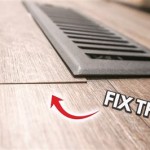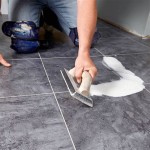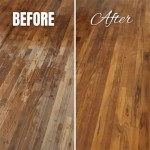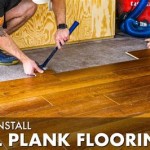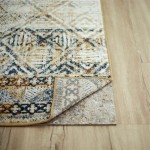What Is The Best Flooring To Use In A Finished Basement?
When finishing a basement, one of the most crucial decisions you'll face is choosing the right flooring. The basement environment presents unique challenges, including moisture, potential flooding, and uneven surfaces. Selecting the ideal flooring for your finished basement requires considering its intended use, your budget, and the specific conditions of your space.
Factors to Consider When Choosing Flooring
Before diving into specific types of flooring, it's essential to understand the key factors that will influence your decision. These include:
1. Moisture and Humidity
Basements are often prone to moisture and humidity due to their proximity to the ground. This can lead to warping, mold growth, and other problems. Opt for flooring materials resistant to moisture and humidity to prevent these issues.
2. Potential Flooding
Flooding is a risk in many basements, especially during heavy rain or snowmelt. Choose flooring options that can withstand occasional flooding and dry quickly to minimize damage.
3. Budget
Flooring costs can vary significantly, so consider your budget when making your decision. Some materials are more expensive than others but offer greater durability or aesthetic appeal.
4. Aesthetics and Style
Your personal taste and the overall design of your finished basement should also influence your flooring choice. Consider the style, color, and texture of the flooring to create the desired ambiance.
5. Comfort and Warmth
Basements can be cold, so choosing flooring that provides insulation and warmth is essential for comfort.
Best Flooring Options for Finished Basements
Several types of flooring are well-suited for finished basements:
1. Engineered Hardwood
Engineered hardwood offers the beauty and durability of traditional hardwood but with enhanced moisture resistance. The core of engineered hardwood is made from plywood or other stable materials, topped with a layer of real wood veneer. It can withstand minor fluctuations in moisture levels, making it an excellent option for basements.
2. Luxury Vinyl Plank (LVP)
Luxury vinyl plank (LVP) has gained immense popularity in recent years due to its affordability, durability, and versatility. LVP consists of a waterproof core covered with a realistic wood or stone-look image layer. It's highly resistant to scratches, dents, and moisture, making it ideal for high-traffic areas and basements prone to spills.
3. Vinyl Tile
Vinyl tile is another waterproof option known for its low maintenance and affordability. It comes in various styles, including wood, stone, and patterned designs. Vinyl tiles are easy to install, making them a good choice for DIY projects.
4. Concrete
Concrete flooring is a highly durable and cost-effective solution for basements. It's naturally moisture-resistant and can withstand heavy loads. While concrete floors are often associated with industrial settings, modern finishes and staining options can create a stylish and attractive look.
5. Carpet
While carpet might seem like an unconventional choice for a basement, certain types can be suitable. Look for moisture-resistant carpet options with a low-pile construction and stain-resistant treatments. Carpet offers warmth and comfort, making it a good option for playrooms or family rooms.
Considerations for Each Flooring Type
Here are some important points to consider for each flooring type:
Engineered Hardwood
- Ensure you choose a grade specifically designed for moisture resistance.
- Consider the installation method, as proper installation is crucial to prevent warping.
Luxury Vinyl Plank (LVP)
- LVP is typically easier to install than engineered hardwood.
- Choose LVP with a higher wear layer rating for increased durability.
Vinyl Tile
- Vinyl tiles can be susceptible to scratches, so choose a thicker gauge for increased durability.
- Ensure proper ventilation to prevent moisture buildup under the tiles.
Concrete
- Concrete floors can be cold, so consider adding radiant heat for increased comfort.
- You may need to seal the concrete to prevent staining and make cleaning easier.
Carpet
- Ensure the carpet has a moisture barrier underneath.
- Choose a carpet with a low-pile construction to prevent trapping moisture.
Choosing the best flooring for your finished basement depends on your individual needs and preferences. By carefully considering the factors discussed above, you can select the flooring that will create a functional, comfortable, and aesthetically pleasing space.

What Is The Best Flooring For Basements Get Pros And Cons
The Best Flooring Options For Your Basement America

Best Basement Flooring Options Forbes Home

5 Best Flooring Options For Basements Floors2day

The Best Flooring Options For Your Basement From Forest Llc

The Best Basement Flooring Options For Your Home

Selecting The Best Basement Flooring Next Day Floors

Best Flooring For Basement Pros And Cons Of

6 Inspiring Ideas For Basement Flooring In Portland

Basement Renovation Cost In Toronto 2024 Senso Design
See Also


